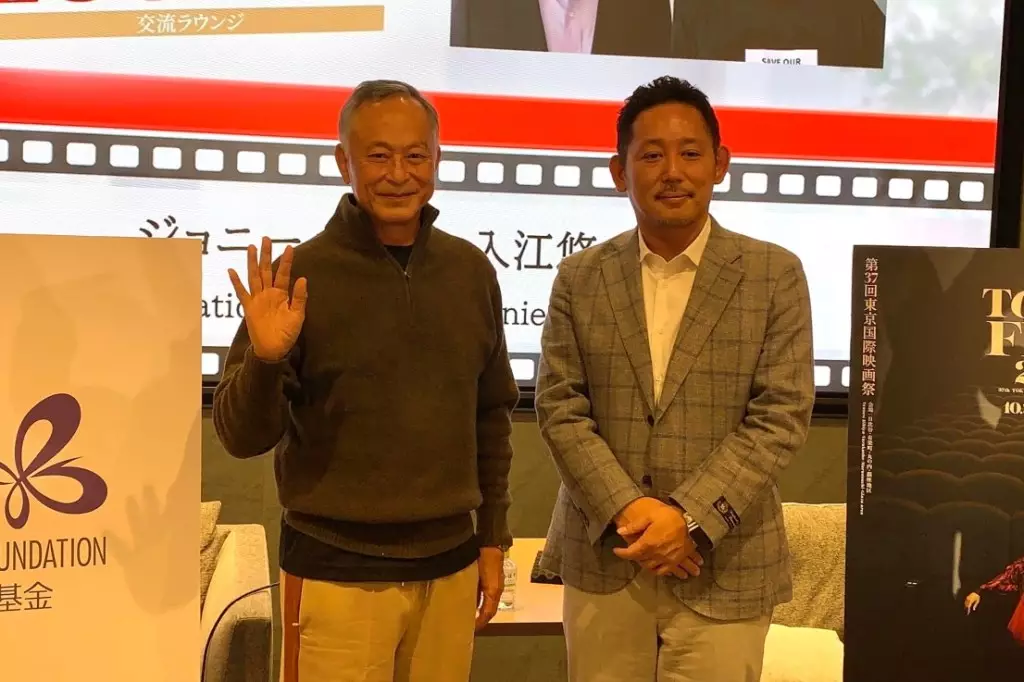In the vibrant tapestry of Hong Kong’s cinematic history, few names resonate as profoundly as Johnnie To. An auteur known for his distinct storytelling and visual flair, To’s contributions to film have not only shaped the landscape of Hong Kong cinema but have also influenced filmmakers worldwide. Recently, during a captivating dialogue with Japanese director Yu Irie at the Tokyo International Film Festival (TIFF), To reflected on his extensive career, the freedom of expression within the industry, and the challenges facing emerging filmmakers in an increasingly regulated environment.
To is revered not merely for his films but for his unorthodox approach to filmmaking. He revealed to the audience that many of his projects, including notable works like “Exiled” and “The Mission,” were developed without the traditional blueprint of a screenplay. This admission was profound; it challenged the conventional wisdom held by many in the industry. To articulated his philosophy: “For me, creating a proper screenplay before you start shooting means that the movie is already completed.” This perspective is both liberating and risky, suggesting that the essence of creation lies in spontaneity and improvisation rather than rigid adherence to pre-defined narratives.
To’s candor extended to his interaction with actors, emphasizing a unique dynamic that evolves during production. He noted, “Around one third of the way in, the actors will know what the director is looking for.” This iterative method allows for organic development not just in performances but also in the narrative itself. Actors, in this sense, are participants in the film’s evolution rather than mere vessels for a script. However, To humbly acknowledged the potential pitfalls of his approach, cautioning upcoming filmmakers against adopting his methods as a template.
While some might see shooting multiple films concurrently as a chaotic venture, To described it as a method to cultivate different creative avenues. His ability to switch gears between commercial and personal projects demonstrated not just versatility but also a profound understanding of different storytelling styles—a rare asset in an ever-evolving industry.
As the conversation turned to the current state of the Hong Kong film industry, To’s tone shifted to one of concern. He articulated a somber reality: “When it comes to expression and execution, there have been some regulations introduced in Hong Kong.” These observations pointed to a landscape marked by increasing censorship, shaped by external political pressures, notably from Beijing. This shift has accentuated the challenges faced by filmmakers who aspire to create authentically thought-provoking narratives while navigating the complexities of censorship.
Citing instances from the Fresh Wave International Short Film Festival—an event To established to foster new talent—he shared troubling anecdotes about works being censored, sometimes resulting in significant alterations to their original content. Such restrictions challenge the very backbone of artistic expression, sparking a discourse on the balance between societal norms and creative freedom.
Despite the gloomy outlook, To offered a glimmer of hope to young filmmakers. He suggested that despite the limitations in Hong Kong, creativity is not bound by geography. By encouraging budding artists to explore opportunities across Southeast Asia, including Singapore, Malaysia, and Taiwan, he underscored the significance of adaptability in today’s interconnected world. The essence lies in harnessing talent and innovation, regardless of external obstacles.
To’s insistence on fostering a resilient mindset among emerging filmmakers is particularly crucial in these turbulent times. His encouragement to “think about how you’re going to say it and how truthful or clear you can be” underscores the need for critical engagement with the storytelling process. In an era where filmmakers often face intimidating constraints, To’s advice reinforces the belief that authenticity can prevail.
The Future of Hong Kong Cinema
As To approaches the milestone of 70 years of age, he candidly acknowledged the changing times and the inevitability of his eventual retirement. His call for increased investment in the Hong Kong film industry, both publicly and privately, reflects a broader desire for sustainable growth within the sector. Such investments are critical in nurturing the next generation of storytellers all while acknowledging that the path forward is fraught with challenges that demand creative resilience.
Johnnie To’s insights during his dialogue at TIFF were both a celebration of past achievements and a sobering reflection on future challenges. As he navigates the twilight of his career, his commitment to cinema and the next generation of filmmakers remains steadfast, urging them to embrace their voice in an uncertain landscape. Theatre screens may change, but the spirit of creativity—and the urgency to express it—endures.

